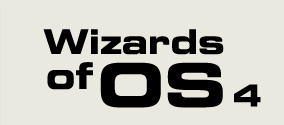|
|
|
|
|
|
Where next for copyright in Europe? Sunday, 13 June 2004, 11-18:00
Technical University Berlin, main building, Room H 2032
organized by
Ian Brown, Director, Foundation for Information Policy Research (FIPR), London
Attendance is free thanks to sponsorship from the Open society Institute, but please send an e-mail to  workshop(at)fipr.org to let us know you will be coming for planning purposes. workshop(at)fipr.org to let us know you will be coming for planning purposes.
Copyright law has become one of the most important and controversial drivers of the Information Society. The Internet has made every user a publisher, but copyright rules governing their activities are often determined by opaque international bodies that decide rules with little public input.
Join us in Berlin to debate where copyright should be going to ensure that authors, musicians, film-makers and the public will all benefit. Engage wih leading international thinkers from across Europe and the United States. Meet colleagues who are working to make sure all members of society benefit from copyright.
Influencing the international agenda
Copyright policy has been a strongly international area of law since the Berne convention was agreed in 1886. More recently, the World Trade Organisation Agreement on Trade-Related aspects of Intellectual Property Rights (TRIPS) and the World Intellectual Property Organisation Copyright and Performances and Phonograms Treaties have changed copyright law around the world. The European Union has passed five copyright-related Directives in the last twelve years. How can civil society play a full role in policy development in these fora?
11:00 Teresa Hackett: International copyright bodies including the European Union and World Intellectual Property Organisation
11:10 Robin Gross, IP Justice: Free Trade Agreement of the Americas experiences
11:20 Sjoera Nas, Bits of Freedom: European Union spam legislation experiences
11:30 Audience
Updating the Copyright Directive
The 2001 Copyright Directive is the key EU law that sets out how copyright works are protected in Europe. A report on its operation should be published by the Commission in the next 18 months, and can recommend changes to improve its effect.
Which parts of the Directive is it most critical to change to benefit the public interest? Given the controversy they have caused, are the articles related to exceptions and technological protection measures most vital? Where does civil society see the most urgency for change?
12:00 Ian Brown, Foundation for Information Policy Research: Experiences in Canada, Australia and Japan
12:10 Mindaugas Kiskis, Law University of Lithuania: Collecting societies
12:20 David Mann, Royal National Institute of the Blind: Collaborative arrangements with publishers
12:30 Lee Bygrave, Norwegian Research Centre for Computers and Law: Ensuring privacy
12:40 Debate with audience
13:10-14:20 Lunch
Implementing the IPR Enforcement Directive
The controversial Intellectual Property Rights Enforcement Directive was pushed through the European Parliament with no time to debate sweeping last-minute changes from the EU Member States. It now covers any infringement of any kind of intellectual property right. How can its effects on civil society be minimised around the EU? Which countries have the most to lose?
14:20 Andreas Dietl, European Digital Rights: Remaining problems with the Intellectual Property Rights Enforcement Directive
14:30 Mariusz Kondrat, Poland Office of the Committee for European Integration: New member state issues and pharmaceuticals
14:40 Georg Jakob, University of Salzburg: Winners and losers from the Intellectal Property Rights Enforcement Directive
14:50 Slobodan Markovic, Netcentar, Serbia
15:00 Debate with audience
Copyright beyond the EU
Countries aiming for EU membership in the next decade such as Romania, Bulgaria and Turkey are updating their copyright laws as part of an overall effort to harmonise law with the EU. What can they learn from the experiences of new EU members like Slovenia that have already harmonised their laws in the process of joining the EU? Countries further east such as Armenia have signed Partnership and Cooperation Agreements with the EU that include obligations to update copyright law, and even those without formal obligations are influenced by the approach of the EU. What positive and negative effects is this having? How can civil society in the EU and beyond best work together to influence the direction of copyright legislation?
15:30 Maja Bogataj, University of Llubljana: Implementation of EU copyright legislation in Slovenia
15:40 Tattu Mambetalieva, Global Internet Policy Initiative, Kyrgyzstan: Copyright convergence in central Asia
15:50 Sacha Belyaeva, InterNews Russia: Russian copyright law and the All of MP3 service
16:00 Veni Markovski, Internet Society Bulgaria: Software company lobbying in Bulgaria
16:10 Debate with audience
Do we need a Digital Rights Directive?
Copyright law is often driven by the relatively small groups of right holders whom it particularly benefits. Civil society and the general public have had limited success in having their concerns taken into account in such law. Should we instead push directly for an EU Digital Rights Directive that would tip the balance back in our favour? What would such a Directive contain? Or can we use existing human rights, consumer and competition legislation to change the operation of copyright legislation toward civil society interests?
16:40 Ross Anderson, Cambridge University and FIPR: Enforcing competition under trusted computing
16:50 William Fisher, Berkman Center for Internet and Society: Reshaping artist compensation
17:00 Wendy Seltzer, Electronic Frontier Foundation and Berkman Center for Internet and Society: Fixing the Digital Millennium Copyright Act
17:10 Ville Oksanen, Helsinki Institute for Information Technology and Electronic Frontier Finland: Balancing consumer and copyright law
17:20 Debate with audience
18:00 Close
|
 |


 workshop(at)fipr.org
workshop(at)fipr.org